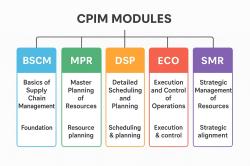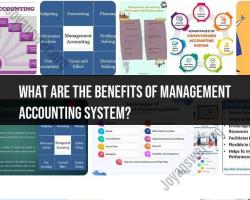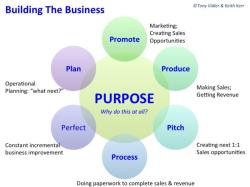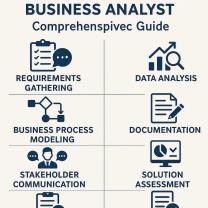How to set your business up for financial success?
Setting your business up for financial success involves careful planning, sound financial management, and strategic decision-making. Here are key strategies to help you achieve financial success in your business:
Create a Solid Business Plan:
- Start with a well-structured business plan that outlines your business goals, target market, products or services, pricing strategy, and financial projections. A strong plan serves as a roadmap for your business's financial success.
Manage Cash Flow Effectively:
- Monitor your cash flow closely. Ensure that you have enough cash on hand to cover operational expenses, repay loans, and invest in growth. Implement cash flow forecasting to anticipate any shortfalls.
Establish a Budget:
- Develop a comprehensive budget that includes both revenue and expenses. Regularly review and adjust your budget as needed to maintain financial discipline.
Separate Personal and Business Finances:
- Open a separate business bank account and maintain clear separation between personal and business finances. This helps with accounting, tax reporting, and financial transparency.
Build and Maintain Emergency Funds:
- Set aside emergency funds to cover unexpected expenses or economic downturns. Having a financial safety net can help your business weather challenging times.
Monitor and Control Expenses:
- Continually evaluate your business expenses and look for cost-saving opportunities. Consider renegotiating contracts, outsourcing non-core functions, and eliminating unnecessary costs.
Invest Wisely:
- Allocate resources for investments that can drive business growth and profitability. This may include expanding your product line, upgrading equipment, or marketing campaigns.
Diversify Revenue Streams:
- Avoid overreliance on a single client or revenue source. Diversify your customer base and explore new markets or product offerings to reduce risk.
Set Pricing Strategically:
- Price your products or services competitively while ensuring profitability. Regularly review and adjust your pricing based on market conditions and costs.
Manage Debt Prudently:
- If you have business loans or credit lines, manage them responsibly. Make timely payments and consider refinancing options if it helps reduce interest costs.
Invest in Financial Education:
- Enhance your financial literacy or hire a financial advisor or accountant who can provide expert guidance on managing your business finances.
Track Key Financial Metrics:
- Monitor key financial indicators such as gross margin, net profit margin, and return on investment (ROI). These metrics provide insights into your business's financial health.
Plan for Taxes:
- Be proactive in tax planning. Understand your tax obligations, explore tax deductions and credits, and consider working with a tax professional to optimize your tax strategy.
Stay Informed About Regulatory Changes:
- Keep up to date with changes in tax laws, industry regulations, and financial reporting requirements that may impact your business.
Regular Financial Reviews:
- Conduct regular financial reviews or audits to assess your business's financial performance and identify areas for improvement.
Adapt to Market Changes:
- Be flexible and ready to adapt your financial strategies as market conditions change. Businesses that can pivot quickly often fare better in dynamic markets.
Financial success in business requires a proactive and disciplined approach to managing your finances. Regularly reviewing and adjusting your financial strategies can help your business thrive and achieve long-term financial stability.
Setting Up Your Business for Financial Success: Practical Tips
Here are some practical tips for setting up your business for financial success:
- Create a business plan. A business plan is a roadmap for your business, and it should include your financial projections. This will help you to identify your start-up costs, operating expenses, and revenue potential.
- Get the right financing. There are many different types of financing available to businesses, so it is important to choose the one that is right for your needs. Consider factors such as the amount of money you need, the terms of the loan, and the impact on your cash flow.
- Track your expenses. It is important to track your expenses so that you can see where your money is going. This will help you to identify areas where you can cut costs.
- Set financial goals. Set specific financial goals for your business, such as increasing revenue by 10% in the next year or reducing costs by 5%. This will help you to stay on track and measure your progress.
- Get professional help. If you need help with your business finances, consider hiring a bookkeeper or accountant. They can help you to set up a financial system, track your expenses, and file your taxes.
Financial Prosperity: Preparing Your Business for Success
Here are some tips for preparing your business for financial prosperity:
- Build a strong foundation. This means having a clear business plan, a well-defined target market, and a competitive product or service.
- Invest in your business. This includes investing in marketing, sales, and research and development.
- Manage your finances wisely. This means tracking your expenses, setting financial goals, and getting professional help when needed.
- Be prepared for unexpected challenges. No business is immune to unexpected challenges, such as a recession or a natural disaster. It is important to have a financial plan in place to help you weather these challenges.
Business Finances and Success: A Strategic Approach
A strategic approach to business finances is essential for success. This means having a clear understanding of your financial goals and developing a plan to achieve them. It also means tracking your progress and making adjustments as needed.
Here are some tips for a strategic approach to business finances:
- Set clear financial goals. What do you want to achieve with your business? Do you want to increase revenue, expand into new markets, or develop new products or services? Once you know your goals, you can develop a plan to achieve them.
- Track your progress. It is important to track your financial progress so that you can see how you are doing towards your goals. This will help you to identify areas where you need to improve.
- Make adjustments as needed. Things don't always go according to plan, so it is important to be flexible and make adjustments to your financial plan as needed.
- Get professional help. If you need help with your business finances, consider hiring a financial advisor or accountant. They can help you to develop a financial plan, track your progress, and make adjustments as needed.
By following these tips, you can set up your business for financial success and prepare it for prosperity.













